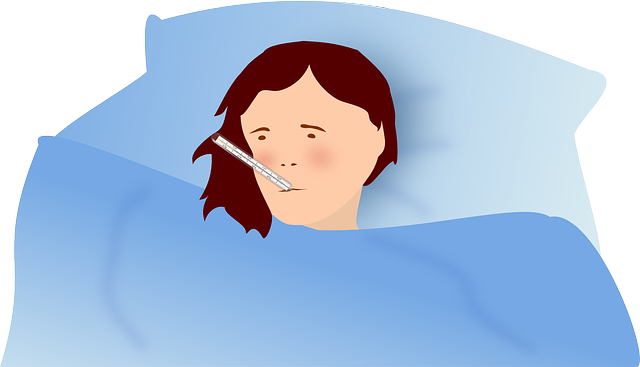
Myths about influenza circulate every fall when the discussion of whether or not to get a flu shot comes up. Should I or shouldn’t I? We each have to make up our own mind, but I would like to clarify the facts.
Last year the flu season was deadlier than the one before it. In 2017-18 there were 80,000 deaths in the US, the most in decades. The annual death rate averages 12,000-56,000. That compares with about 40,000 deaths annually from motor vehicle crashes. While 90% of people in the US wear seat belts, less than half get a flu vaccine.
As a physician, I hear people every day tell me all the reasons why they don’t get a flu vaccine. Most of the reasons are based on stories that people have heard from friends or family, not on actual scientific research. Let me clarify the reality.
The flu and a cold are not the same.
Influenza is a virus that causes what we colloquially call “the flu.” However, close to 90% of the time when someone tells you they had the flu, they didn’t really have influenza. They just had a bad cold virus. So to start out, we are all confused. That is why you hear people say all the time that they had the vaccine but still got the flu. That certainly can happen, but most of the time they didn’t even have the flu. Yet, they spread information about what a waste of time it is to get the flu vaccine.
The flu vaccine is customized every year.
Every flu season is different. The virus mutates every year so the vaccine needs to be changed to adapt. It is actually an amazing system. The WHO in Geneva watches the viruses circulating around the world and guesses what will be in North America the following winter. Each year the effectiveness of the vaccine varies since this is an imperfect system; it is impossible to predict mutations.
Healthy people still benefit from receiving the flu vaccine.
One of the biggest reasons people give for not getting the vaccine is that they don’t think that it matters. People think they are healthy so there is no need. However, people who are healthy can get severe consequences from influenza. Half of the children who die from influenza have no underlying medical condition. They were perfectly healthy.
The flu vaccine won’t give you the flu.
The next most common reason people give me for not getting a flu vaccination is that they are more concerned about the health risks of the vaccine than they are about the flu. Science, however, supports the safety of the vaccine. Flu vaccines are tested extensively for safety and produced under very high standards. In addition, the flu shot is incapable of giving you the flu, despite what people often say.
The flu vaccine will lessen your symptoms if you do still catch it.
People will commonly state that there’s no point in getting the flu shot since there’s still a chance of catching the flu. It is not very effective anyway so why bother? The effectiveness of the flu shot varies year to year, true, but a better thing to focus on is how well the vaccine protects against not just getting sick but also hospitalization and death. If a vaccinated person gets the flu, they are less likely to have a serious case of influenza that leads to pneumonia, brain swelling or other serious complications. Influenza may also trigger a heart attack, and studies have shown that getting a flu shot can help prevent heart attacks and strokes as well as taking blood pressure and cholesterol medication. Although the vaccine in 2017-18 was only 40% effective, it prevented an estimated 5.3 million cases of the flu, 2.6 million medical visits and 85,000 hospitalizations. An estimated 80% of children who die of the flu are unvaccinated, and vaccination can help reduce an infected child’s risk of dying by 65 percent.
The influenza vaccine is a lot like insurance. It does not guarantee that you don’t get the flu, but it is additional protection. It also helps protect those around you, since when you catch the flu you spread it to those around you before you even know you are sick.
[hr]
Margaret Miller, M.D.
Dr. Miller works at Burgess Pediatrics in Menlo Park, the first pediatric-only concierge practice on the Peninsula. She is practicing old fashion medicine in a modern world and offers complimentary visits to meet her and learn about her practice. Contact her at 650-321-9555 to set up an appointment.

















